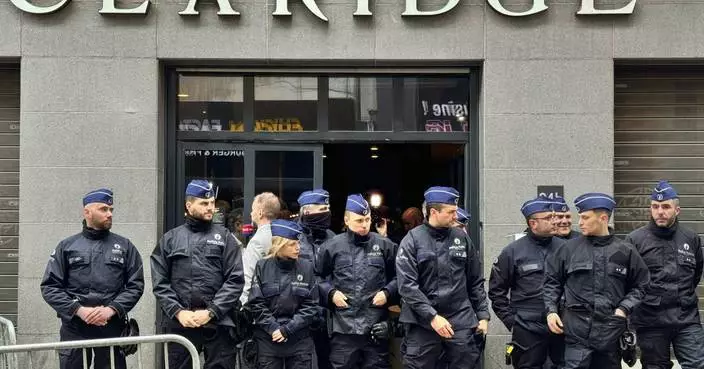Thousands of relatives of former foreign fighters in the Islamic State group should be repatriated, the U.N. human rights chief said Monday, insisting children in particular have suffered "grievous violations" of their rights — a challenge to European and other countries that have been reticent about taking back jihadis and their kin.
Michelle Bachelet said more than 55,000 suspected IS fighters and their families have been detained in Iraq and Syria. Most are in the custody of the Iraqi government and the U.S.-backed Syrian Democratic Forces, and the alleged fighters come from over 50 countries. More than 11,000 relatives are being held at the Al Hol camp in northeastern Syria alone.
Bachelet appealed to the relevant countries to uphold their responsibilities under international law, even with regard to members of an extremist group infamous for beheadings and other grave violence. Many European countries have been reluctant to take back their nationals, led by France, which saw more of its citizens join IS than any other European country.
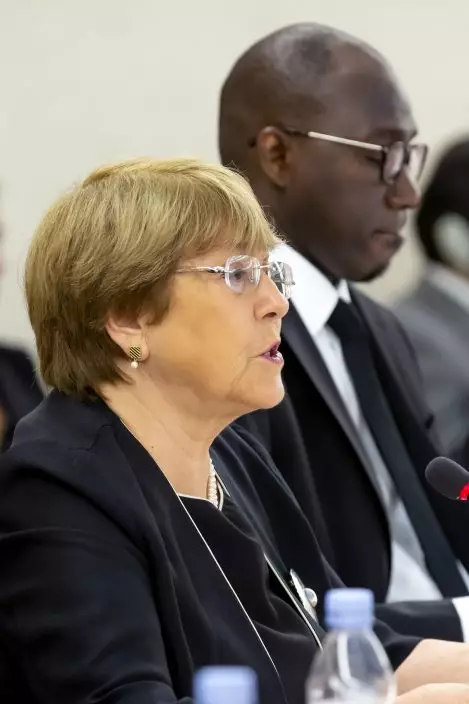
U.N. High Commissioner for Human Rights Chilean Michelle Bachelet, left, speaks beside the President of the Human Rights Council, Coly Seck of Senegal, right, during the opening of the 41th session of the Human Rights Council, at the European headquarters of the United Nations in Geneva, Switzerland, Monday, June 24, 2019 (Magali GirardinKeystone via AP)
"Foreign family members should be repatriated, unless they are to be prosecuted for crimes in accordance with international standards," Bachelet told the Human Rights Council as it opened its summer session. "Children, in particular, have suffered grievous violations of their rights — including those who may have been indoctrinated or recruited by ISIL (Islamic State) to perpetrate violent acts."
Putting European jihadis on trial in their home countries is considered problematic, as little evidence that would survive judicial scrutiny directly links them to crimes in Syria and Iraq.
Bachelet said some existing cases haven't met international standards, noting that Iraq has sentenced to death more than 150 men and women in trials "which have not afforded adequate due process guarantees."
In her wide-ranging speech, Bachelet also expressed "regret" at Saudi Arabia's "dismissal" of a report last week by an independent U.N. human rights expert criticizing the kingdom over the killing of Saudi journalist Jamal Khashoggi. As for China, she commended a "sound decision" by Hong Kong authorities to delay a bill on extradition that fanned mass protests.
But her biggest focus was on thousands of former IS members, saying many at Al Hol lived in "deeply sub-standard" conditions.
The U.S. has been urging European countries to bring back their nationals and put them on trial but most EU countries have refused. Russia and Kazakhstan have been most active at repatriating foreign fighters and their families.
Earlier Monday, Australian Prime Minister Scott Morrison said that eight children of two slain Islamic State group fighters had been removed from Syria to an unspecified location before planned repatriation to Australia. It would mark the country's first organized repatriation from the conflict zone.
Groups of French children were returned to France earlier this month, along with at least three adults who were immediately detained for questioning. A dozen Frenchmen have been sentenced to death in Iraq.
There has been a recent push for an international tribunal to try former IS fighters, but it has yet to gain tangible backing.
WARSAW, Poland (AP) — Polish Prime Minister Donald Tusk expressed satisfaction on Monday after a series of candidates supported by his party won weekend races for mayor.
Candidates from his pro-European Union centrist Civic Coalition, or running with the party's backing, won in a series of cities in the second round of local elections held on Sunday, among them Krakow, Poznan, Wroclaw and Rzeszow.
“It is very difficult to clearly say who won and who lost,” Tusk said Monday. “But if we compare these results, especially in the most attractive places, on these attractive battlefields ... then I actually have reasons for satisfaction.”
“Law and Justice has simply disappeared in many places,” Tusk added at a news conference, referring to the main opposition party.
The results put Civic Coalition in a favorable position as the country looks next to elections to the European Parliament on June 9.
Mayors were chosen in a total of 748 cities and towns where no single candidate won at least 50% of the vote during the first round on April 7.
Candidates for Tusk’s party also recaptured cities where they had not held power for many years, including Zielona Gora, Legnica and Torun.
The local and regional elections were viewed as a test for Tusk's pro-European Union government four months after it took power at the national level. Sunday's second round strengthened the Tusk government's leverage in the cities, which should facilitate cooperation on development projects and allotment of EU funds.
Tusk's allies also won in some places in the first round two weeks ago, including in Warsaw, where incumbent Mayor Rafal Trzaskowski was an easy victor.
In the first round, the right-wing Law and Justice, prevailed on the level of regional assemblies in the country's 16 provinces, where it took 34.3% of the votes, while Tusk's Civic Coalition got 30.6%. Law and Justice governed on the national level from 2015-23.
Tusk’s socially liberal Civic Coalition traditionally has strong support in cities, while Law and Justice has a more solid base in conservative rural areas, particularly in eastern Poland.
Civic Coalition is the largest group in a three-party coalition that governs the EU nation of 38 million people. The coalition is pro-European Union but otherwise spans a wide ideological spectrum with left-wing politicians in the Left party as well as conservatives in the Third Way.
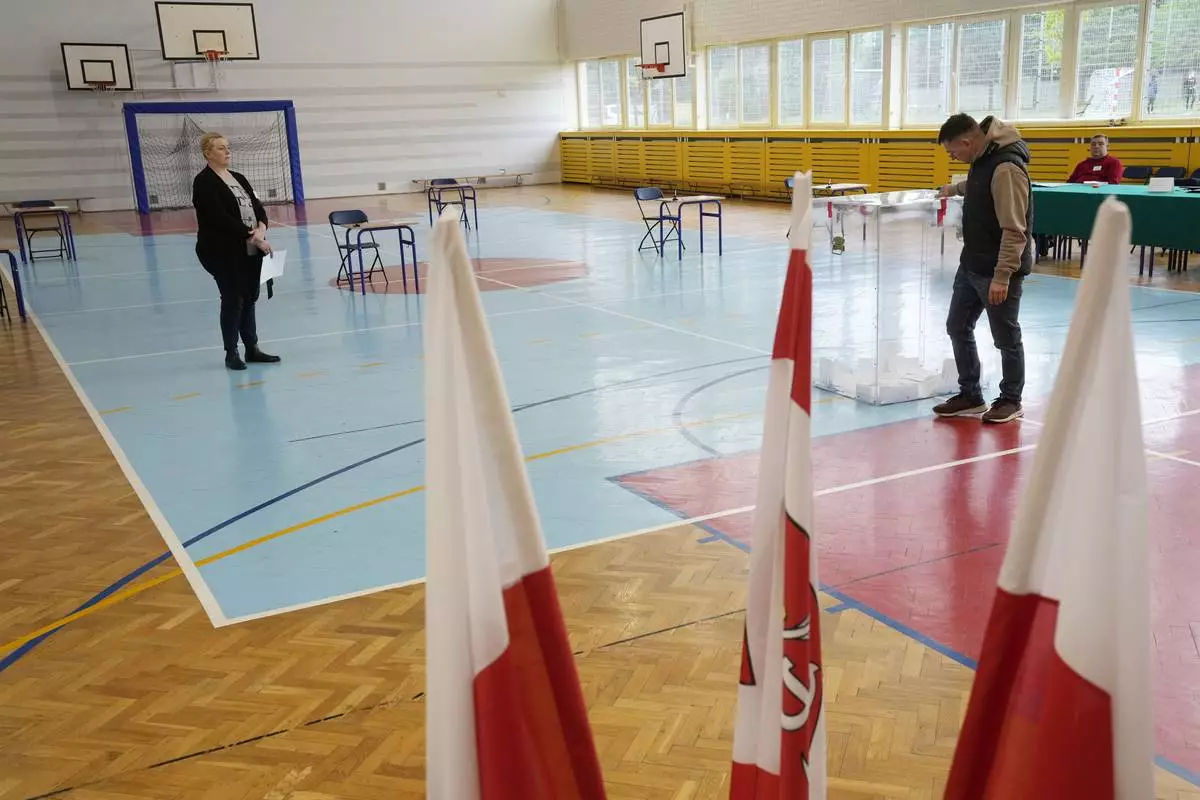
Polish voters take part in a local runoff election in Lomianki, near Warsaw, Poland on Sunday, April 21, 2024. Voters are choosing mayors who did not win outright in the first round of the election two weeks earlier. (AP Photo/Czarek Sokolowski)
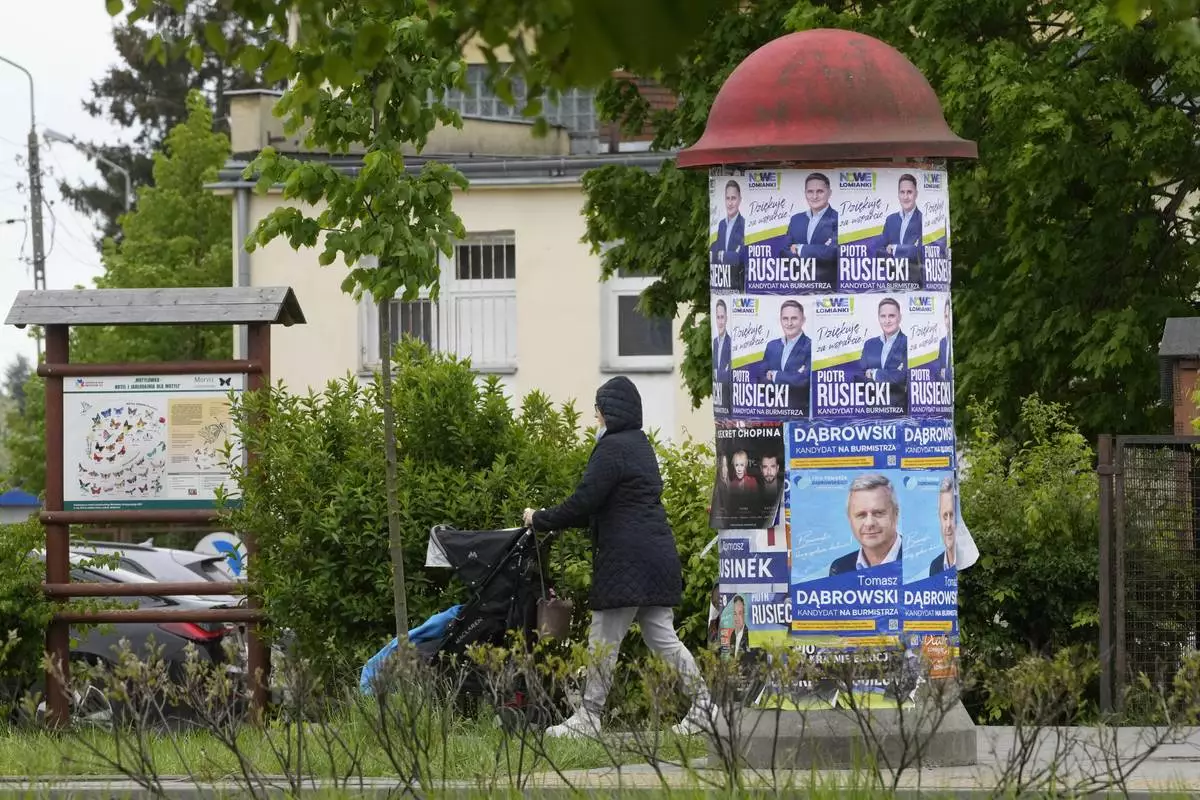
Campaign posters promote candidates as Poles vote in local and regional elections in Lomianki, near Warsaw, Poland on Sunday, April 21, 2024. Voters are choosing mayors who did not win outright in the first round of the election two weeks earlier. (AP Photo/Czarek Sokolowski)
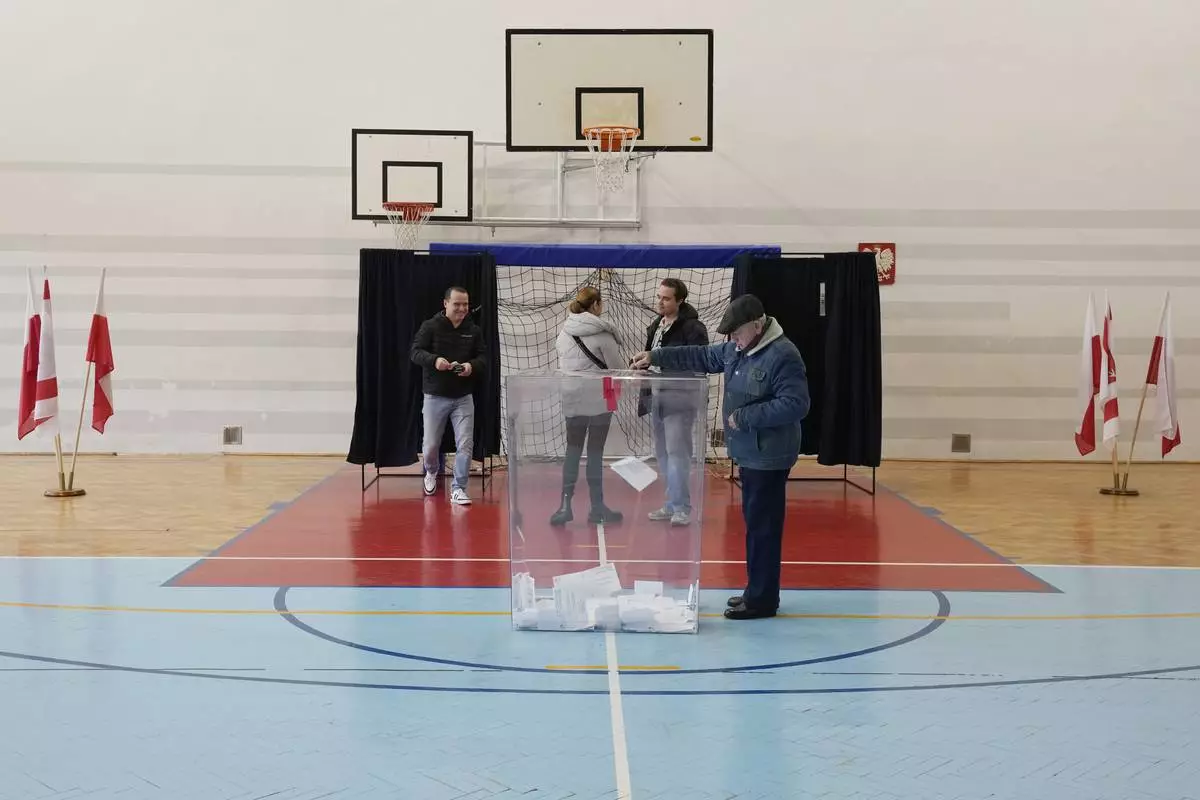
Polish voters take part in a local runoff election in Lomianki, near Warsaw, Poland on Sunday, April 21, 2024. Voters are choosing mayors who did not win outright in the first round of the election two weeks earlier. (AP Photo/Czarek Sokolowski)
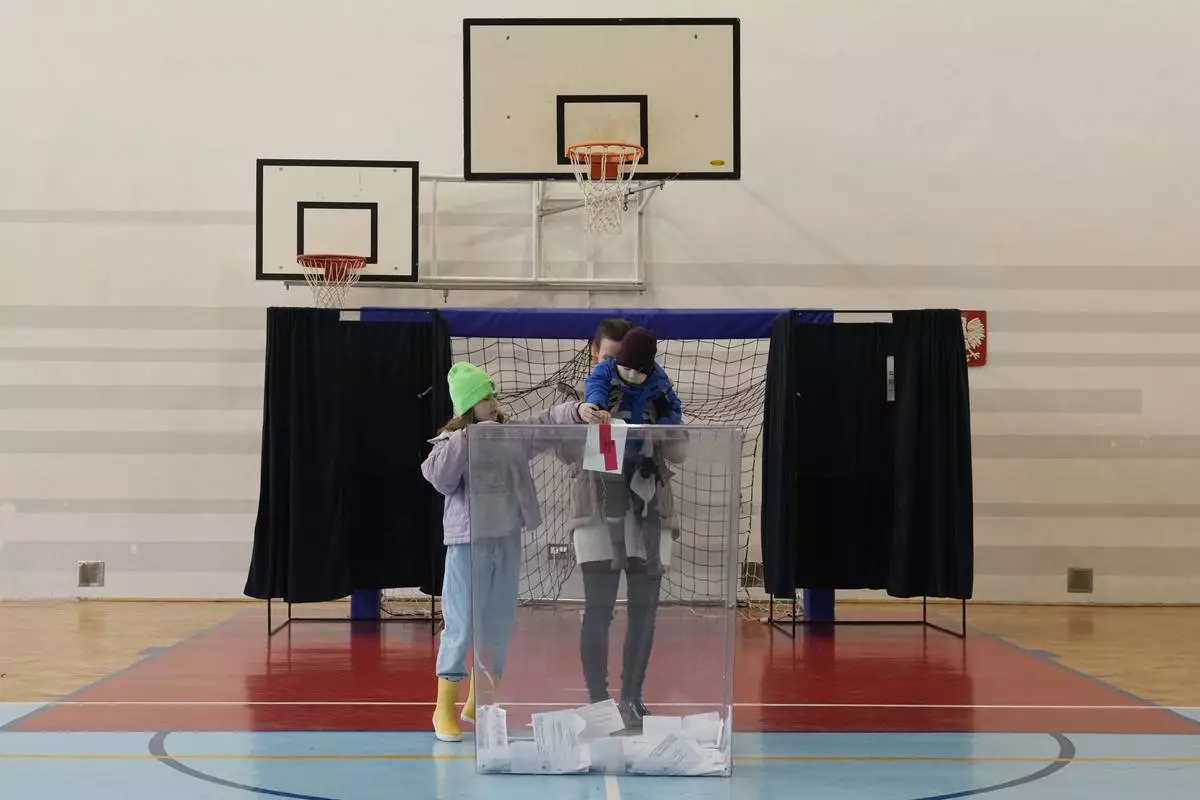
Polish voters take part in a local runoff election in Lomianki, near Warsaw, Poland on Sunday, April 21, 2024. Voters are choosing mayors who did not win outright in the first round of the election two weeks earlier. (AP Photo/Czarek Sokolowski)
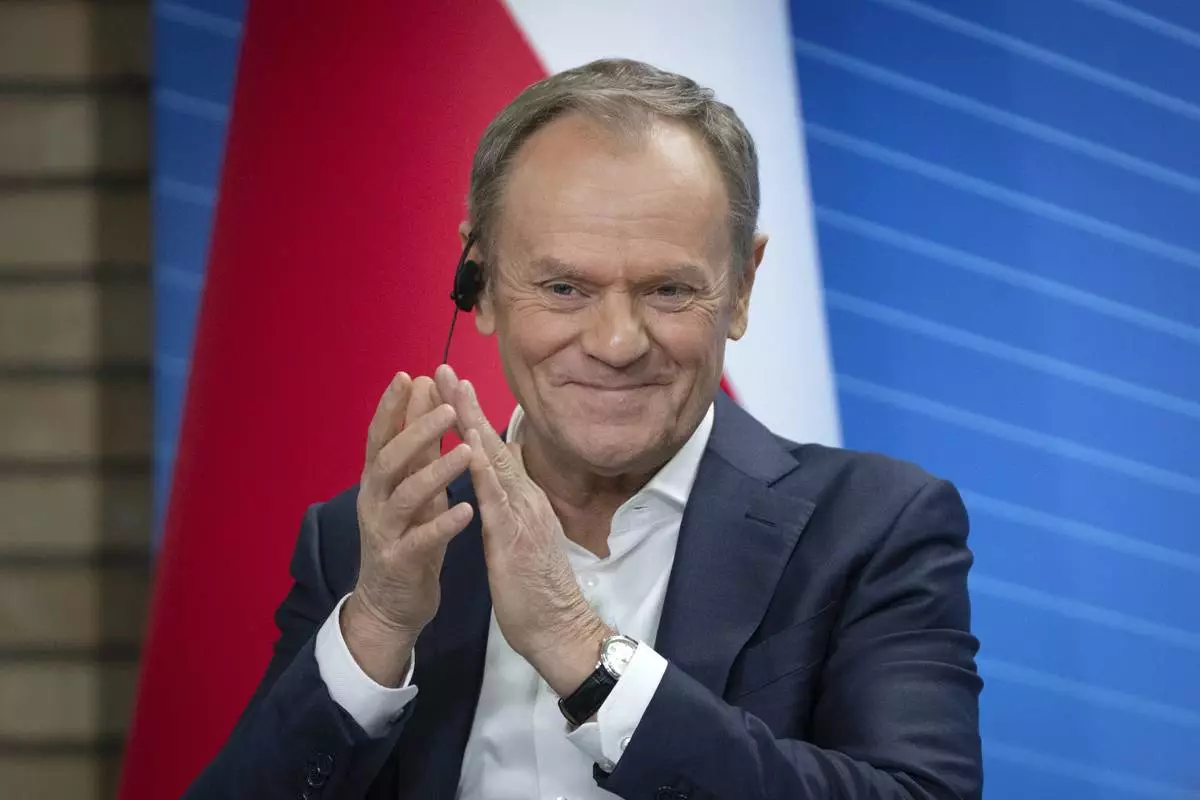
FILE - Poland's Prime Minister Donald Tusk reacts during his and Ukrainian President Volodymyr Zelenskyy meeting with students in Kyiv, Ukraine, Monday, Jan. 22, 2024. Poland's Prime Minister Donald Tusk is celebrating a victory on Monday April 22, 2024 after a series of candidates supported by his party won weekend races for mayor. (AP Photo/Efrem Lukatsky, File)
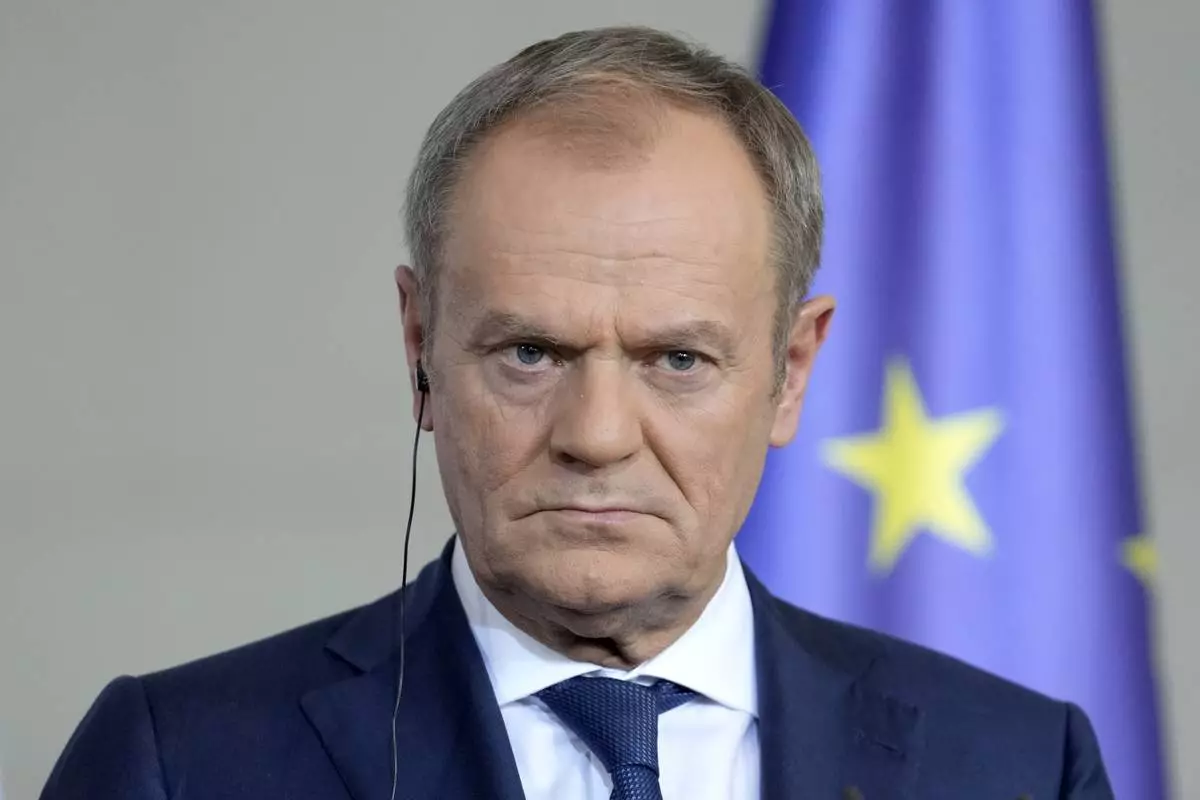
FILE - Poland's Prime Minister Donald Tusk listens to the media in Berlin, Germany, Friday, March 15, 2024. Tusk is celebrating a victory on Monday April 22, 2024 after a series of candidates supported by his party won weekend races for mayor. (AP Photo/Ebrahim Noroozi, File)
















